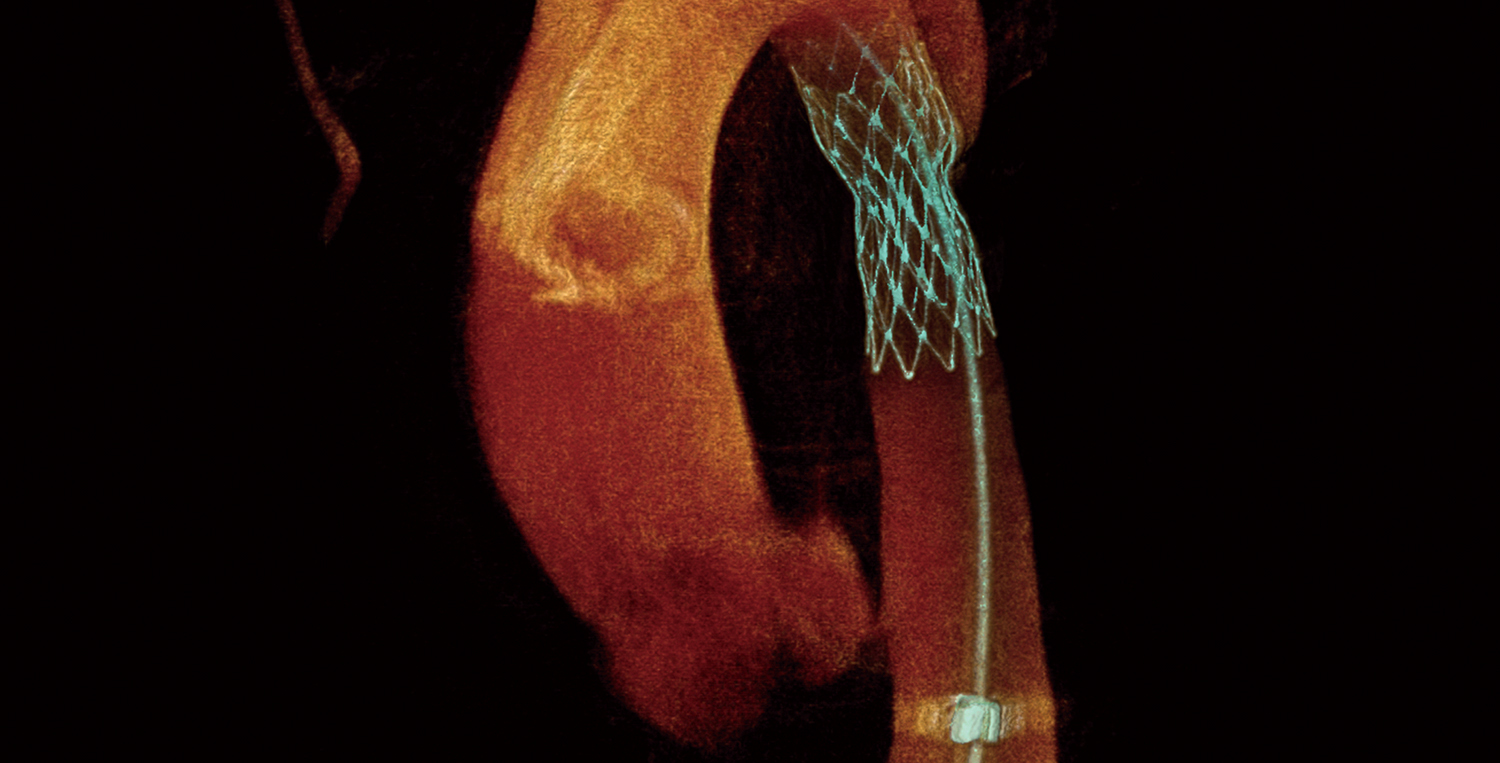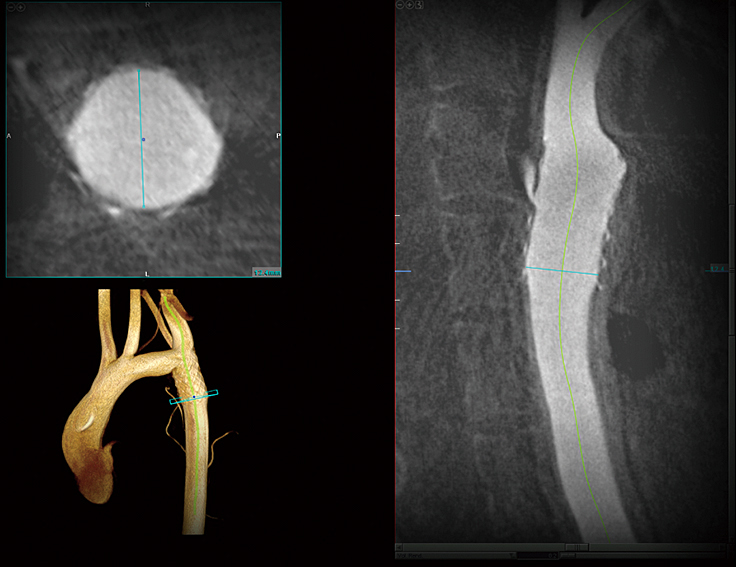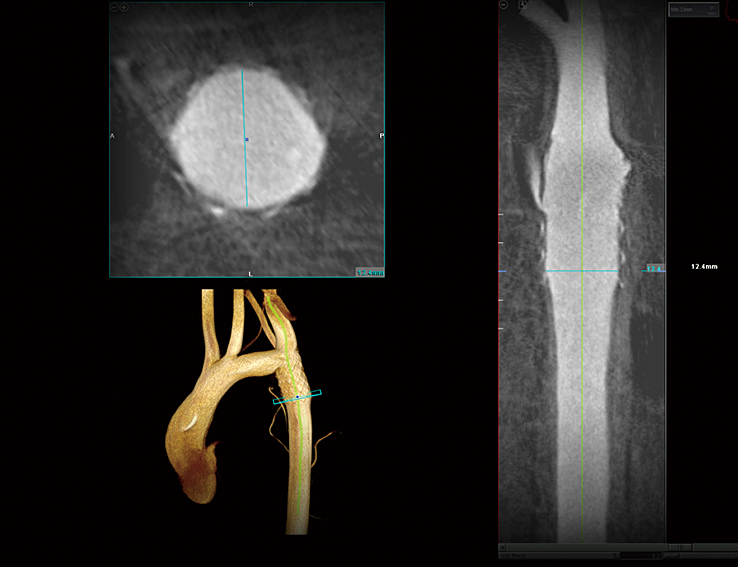
Collaborative imaging

Neurology Clinical Applications
Neurology Clinical Applications
CT Brain Perfusion 4D
CT Brain Perfusion 4D* aids with assessing the whole brain and evaluating perfusion deficits by displaying 4D-DSA (digital subtraction angiography) views of blood flow in the vessels and 3D perfusion maps. It supports the physician in visualizing the apparent blood perfusion in brain tissue affected by acute stroke. Automated tools help to efficiently visualize anatomy and pathology.
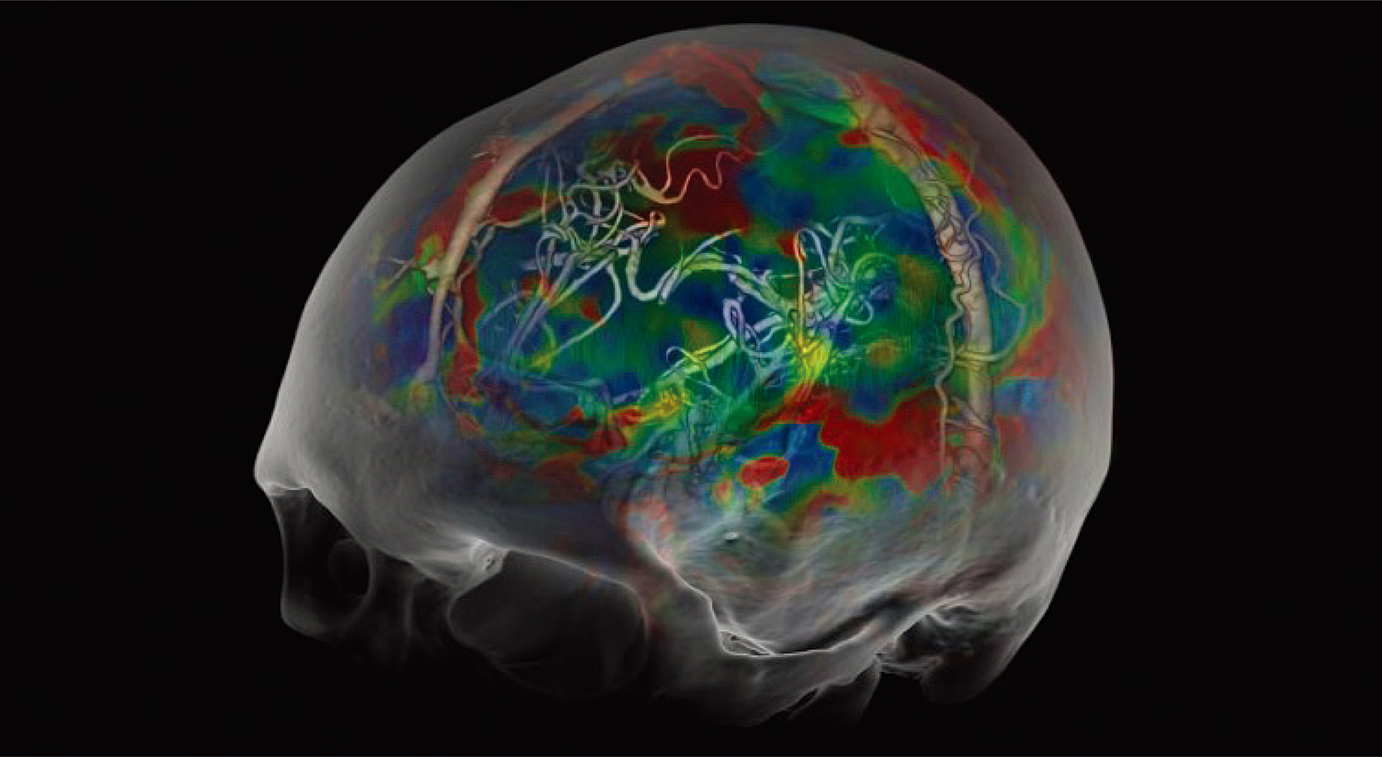
Key Benefits
- Automatic calculation of quantitative brain perfusion results:
- Regional Cerebral Blood Volume (rCBV)
- Mean Transit Time (MTT)
- Regional Cerebral Blood Flow (rCBF)
- Time-to-Peak of tissue response curve (TTP)
- Delay of tissue response curve
- Single-view Summary Map for communicating the perfusion results
- 4D cine of the DSA view for visualizing the flow of contrast through the vessels
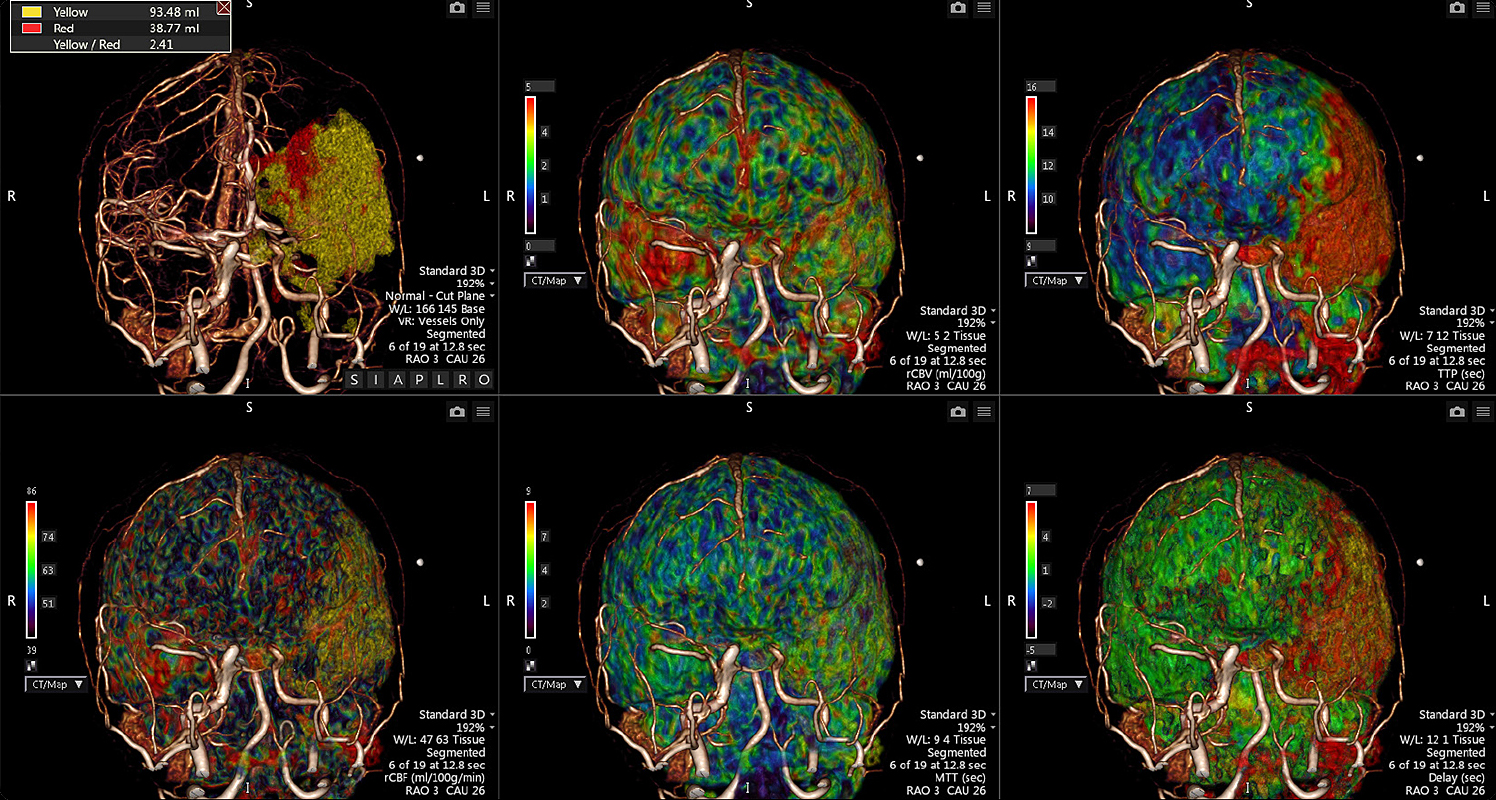
*CT Brain Perfusion 4D is a Vitrea™ Advanced Visualization application manufactured by CMI.
Always refer to the Instructions For Use supplied with the product for complete instructions, indications and cautions.
Neurology Clinical Applications
CT Brain Perfusion 2D
CT Brain Perfusion 2D provides visualization of apparent blood flow, blood volume and mean transit time (MTT), which can help physicians determine the presence of acute cerebral infarcts in brain tissue affected in an acute stroke.
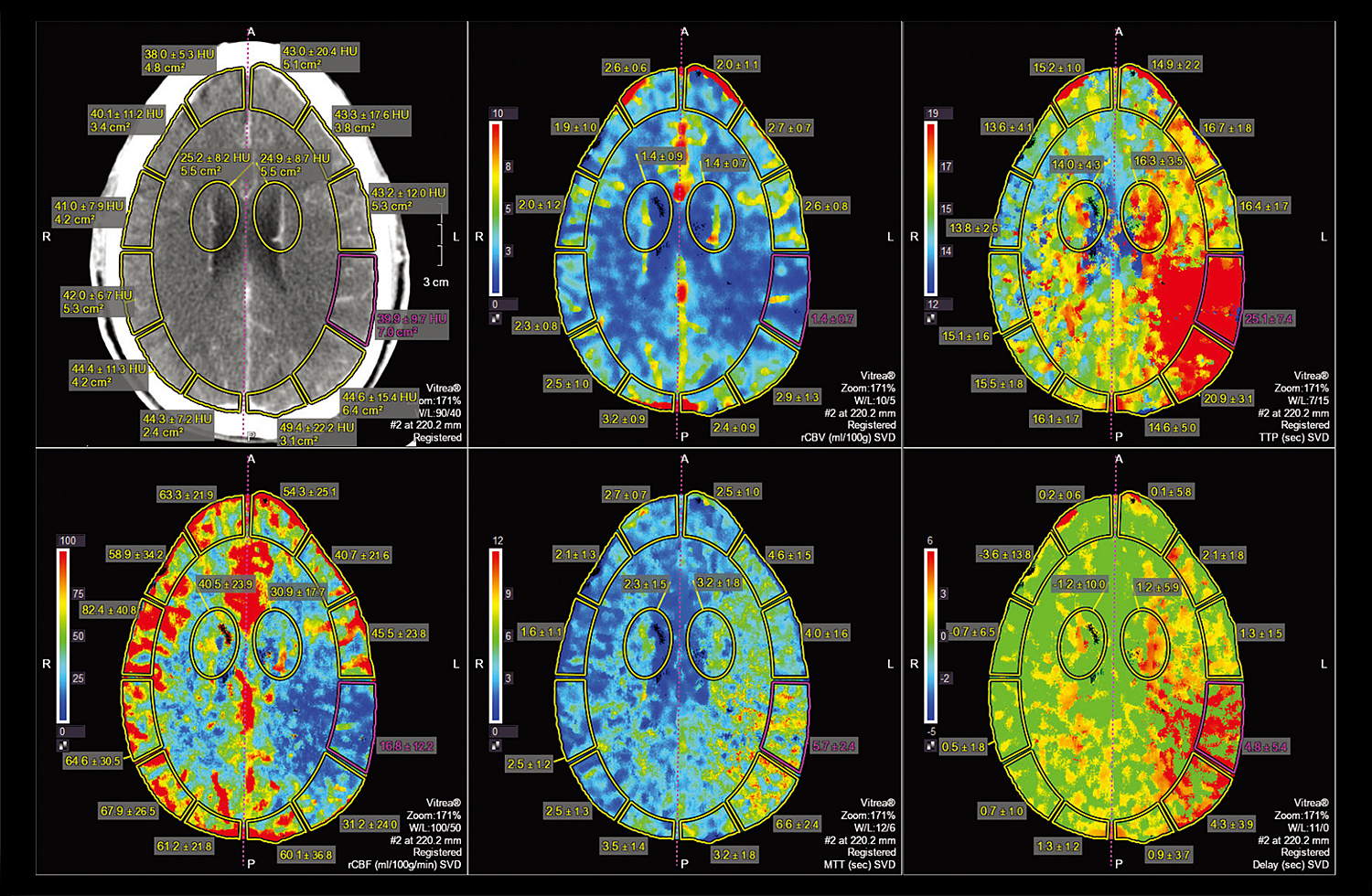
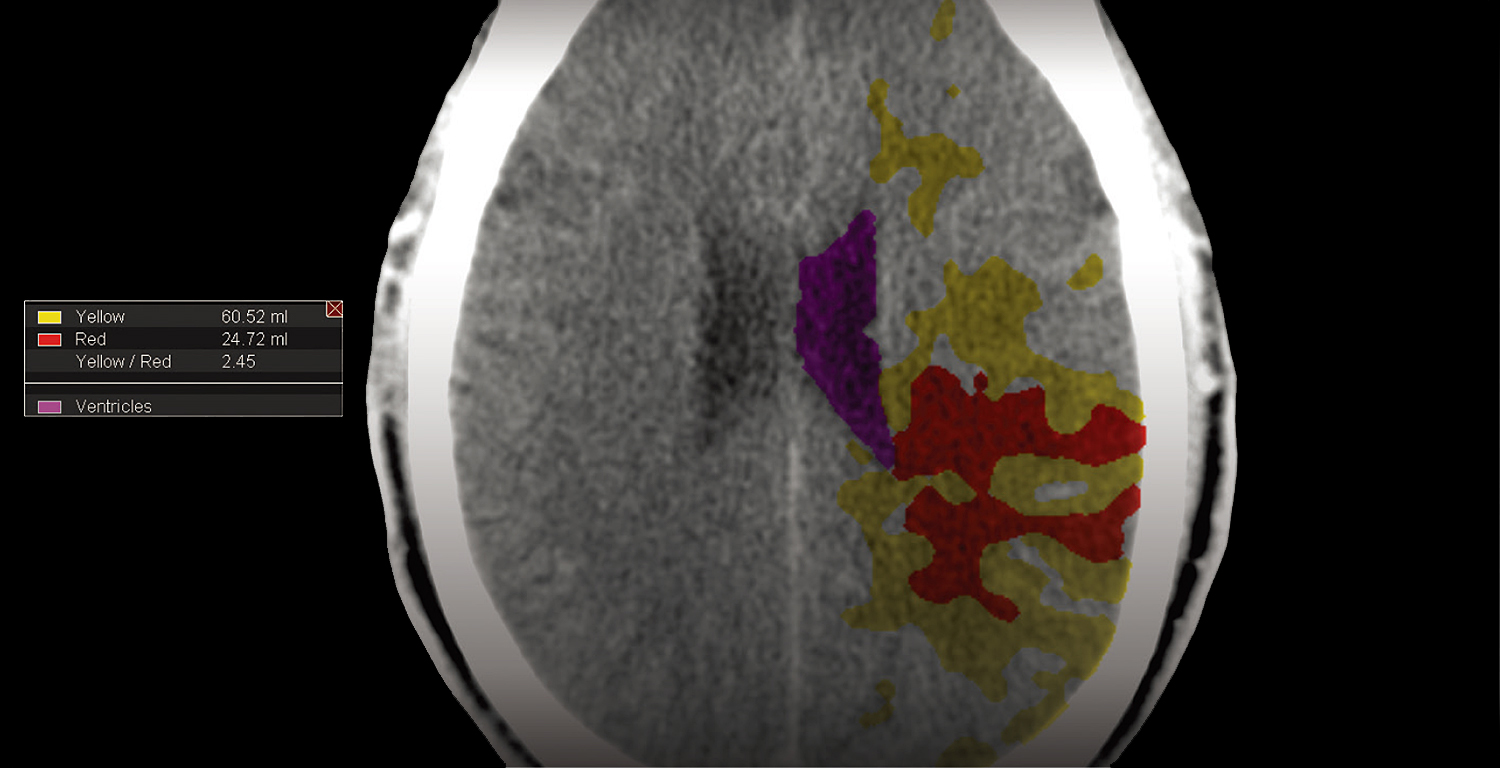
Neurology Clinical Applications
MR Clinical Suite
Vitrea™ Advanced Visualization software is a multi-modality system providing comprehensive applications in a variety of IT environments.
The MR Clinical Suite, powered by Olea Medical, includes Diffusion, Perfusion and streamlined application workfl ows across many different organs. This package provides access to features which enhance the clinical routine.
Applications
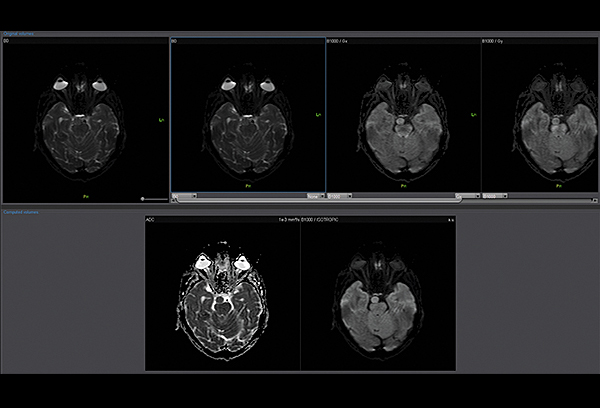
Diffusion Weighted Imaging (DWI)*
The DWI application processes isotropic images from each diffusion gradient factor. It computes parametric maps such as ADC maps and Exponential ADC maps.
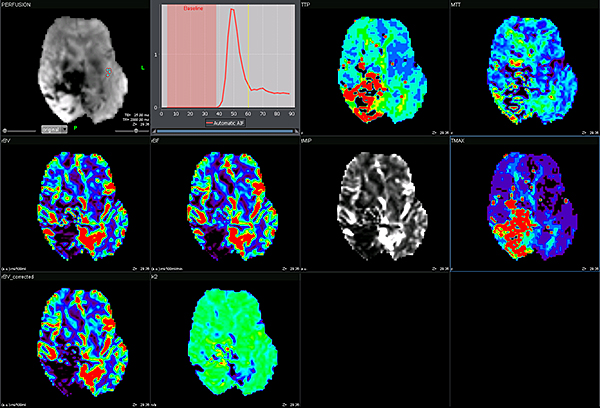
DSC Perfusion*
The DSC Perfusion application computes optimized parametric maps (rBV, rBF, TTP, MTT, TMAX, tMIP) from raw perfusion series and provides an algorithm to correct effects of the contrast agent leakage, therefore computing a permeability map. This application supports irregular time sampling and is embedded with the following: automatic or manual arterial input function, automatic background segmentation, four deconvolution methods (sSVD, cSVD, oSVD and Bayesian) and instantaneous motion correction algorithm.
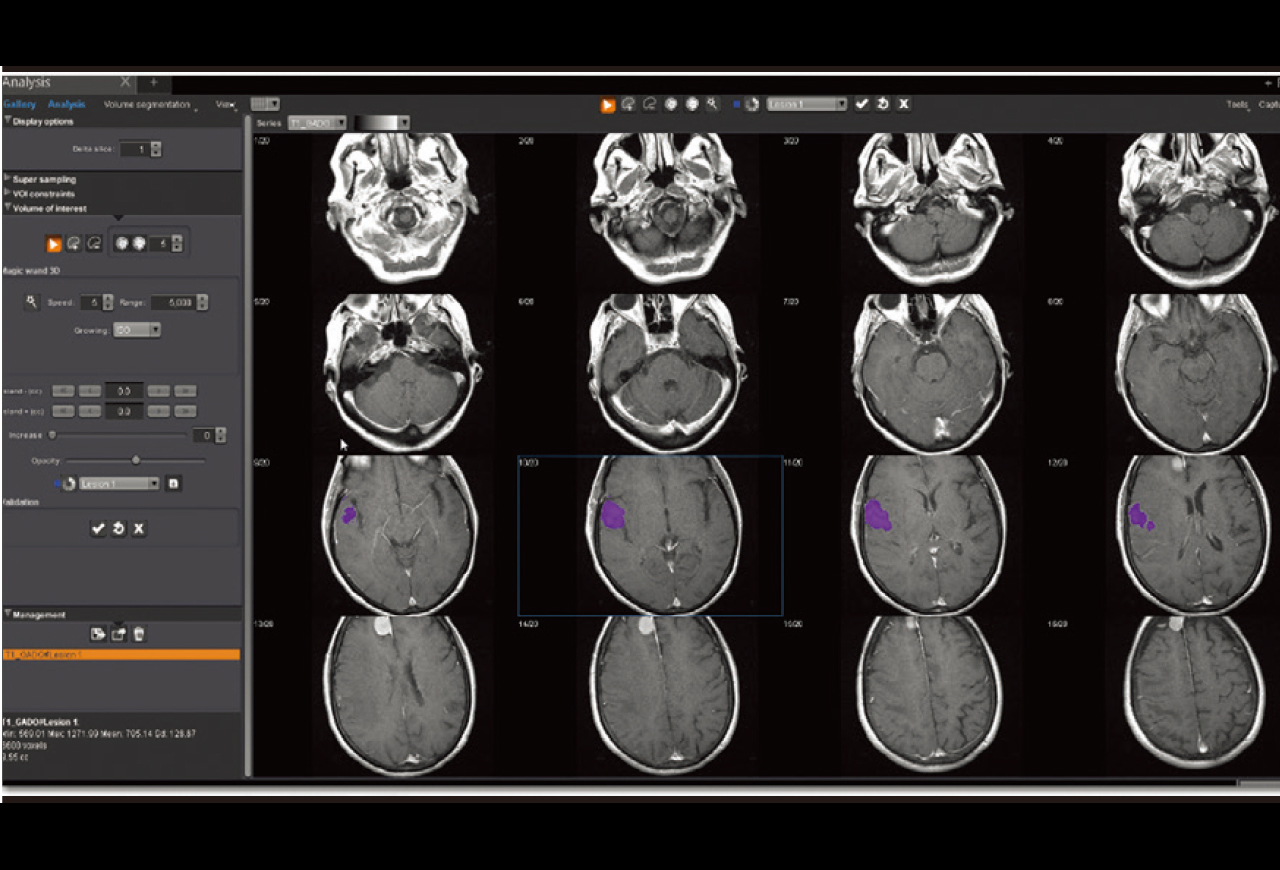
Analysis*
The Analysis application visualizes, segments, measures and evaluates a broad range of datasets from conventional series to perfusion and kinetics series along with DTI and DWI series. It provides user-defined hangings, including specific display per organ and/or pathology, kinetics and curves analysis, ROI, statistics, ratios and histograms, multiple series fusion, semi-automatic volume segmentation, volume rendering and follow-up options.
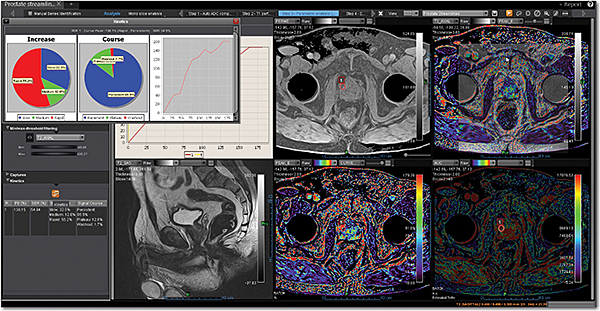
Kinetics*
The Kinetics application measures the type of contrast enhancement through a kinetic curves analysis and is predictive of malignancy for breast and prostate pathologies.
Mono Follow-up*
The Mono Follow-up application is embedded with 3D registration between different dates, different modalities or different series within the same study. It provides an optimum interface to efficiently track and assess different time points.
Application Workflows
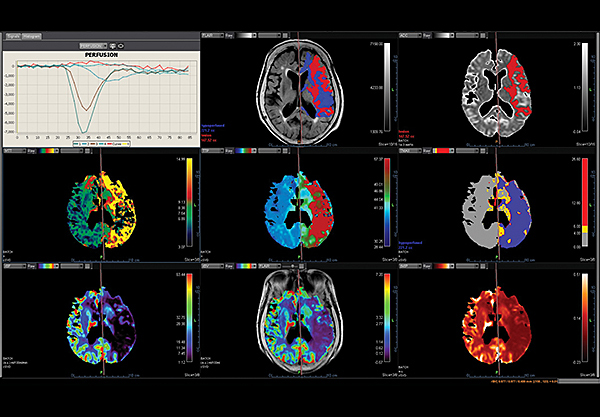
MR Acute Care Stroke*
Whatever the degree of emergency, these applications provide radiologists with direct access to the stroke report in no time. These applications include dynamic temporal information of blood flow through unique dynamic thresholding perfusion maps to visually assess hypoperfused areas and use the Bayesian method for halving the contrast-dose for brain perfusion.
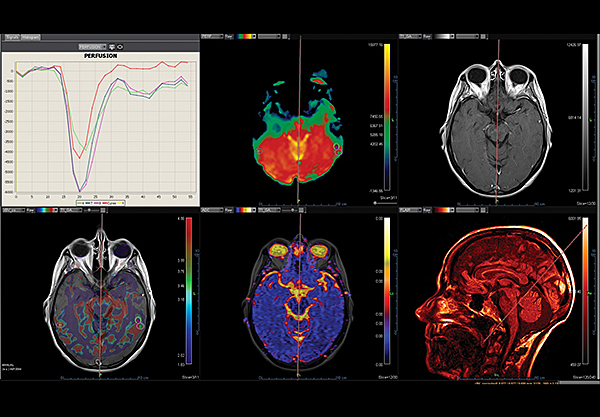
Brain Tumor Streamlined*
The Brain Tumor application workflow offers automated step-by-step processing, including quantitative multi-parametric analysis. This application also includes an optimized leakage correction algorithm to improve the accuracy of dynamic susceptibility-weighted contrast-enhanced perfusion MR imaging.
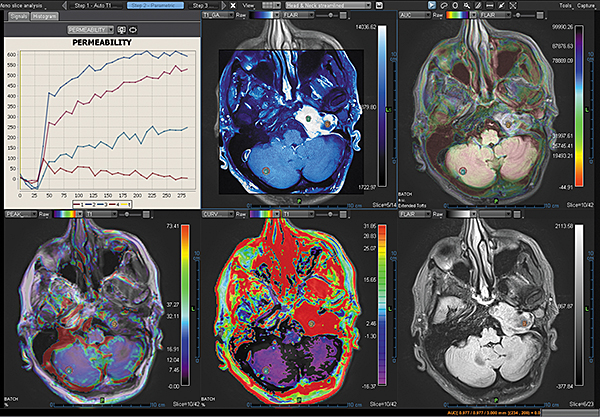
Head and Neck Streamlined*
The Head and Neck Streamlined application workflow provides the automatic diffusion, permeability maps computation, including quantitative data to efficiently assess the patient’s response to treatment.
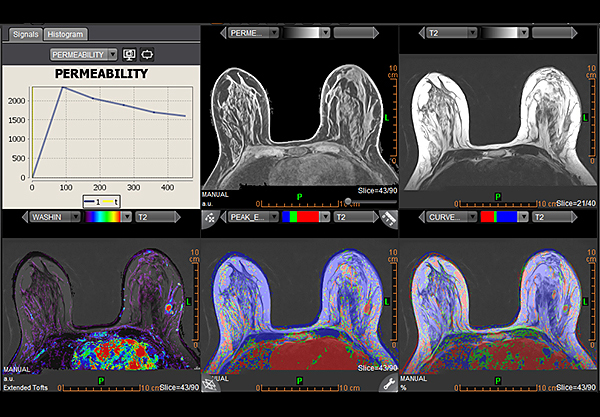
Breast Streamlined*
The Breast Streamlined application workflow is an efficient tool for breast lesion detection, characterization and staging. This workflow computes and displays conventional, diffusion and kinetics maps (qualitative) and offers complete multi-parametric analysis, including MPR and 3D visualization, volume segmentation, multiple series fusion, kinetics and curve analysis. The Breast applications also include the latest Breast detected report based on BI-RADS® ATLAS; useful to improve communication between radiologists, patients and referring physicians. The standard reporting tool ensures acceptable risk assessment and enhanced follow-up of suspicious findings.
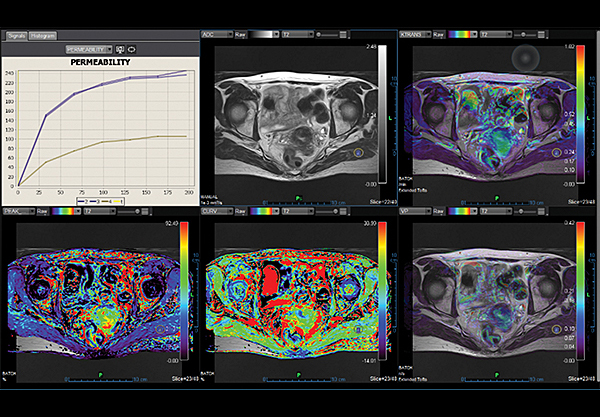
Female Pelvis*
The Female Pelvis application workflow analyzes morphological changes on pelvic female organs (ovaries, uterus, pelvic floor) under pathological conditions. Accurate metrics are a few clicks away: automatic diffusion computation, providing qualitative parameters for quick visual inspection.
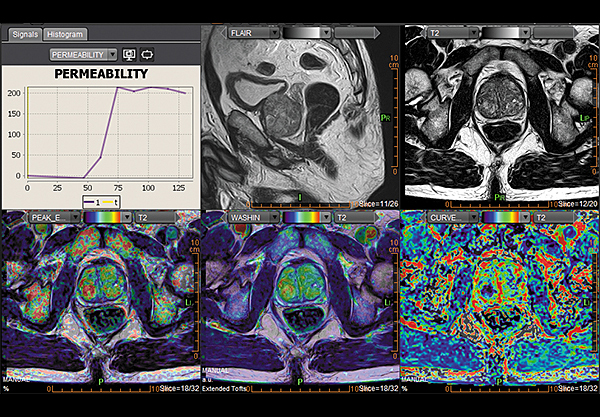
Prostate Streamlined*
Olea Sphere™ dedicated applications include advanced diffusion and qualitative perfusion parameters, and offer efficient simultaneous multiparametric analysis of all available sequences, with prostate specific display. Specific kinetics thresholds and quantitative data based on robust mathematical models are provided instantaneously. Prostate applications include PI-RADS® 2 report to further improve the detection, characterization and staging of prostate cancers. This version standardizes terminology and content of reports, and clarifies the level of suspicion or risk of clinically significant tumors is also available.
*Designed and manufactured by Olea Medical.
Neurology Clinical Applications
Cerebral Aneurysm Analysis
Cerebral Aneurysm Analysis tool facilitates the extraction and segmentation of a user defined aneurysm in the cerebral arteries.
The software can be used as an adjunct for analyzing the aneurysm dimensions to reduce processing time and increased accuracy.
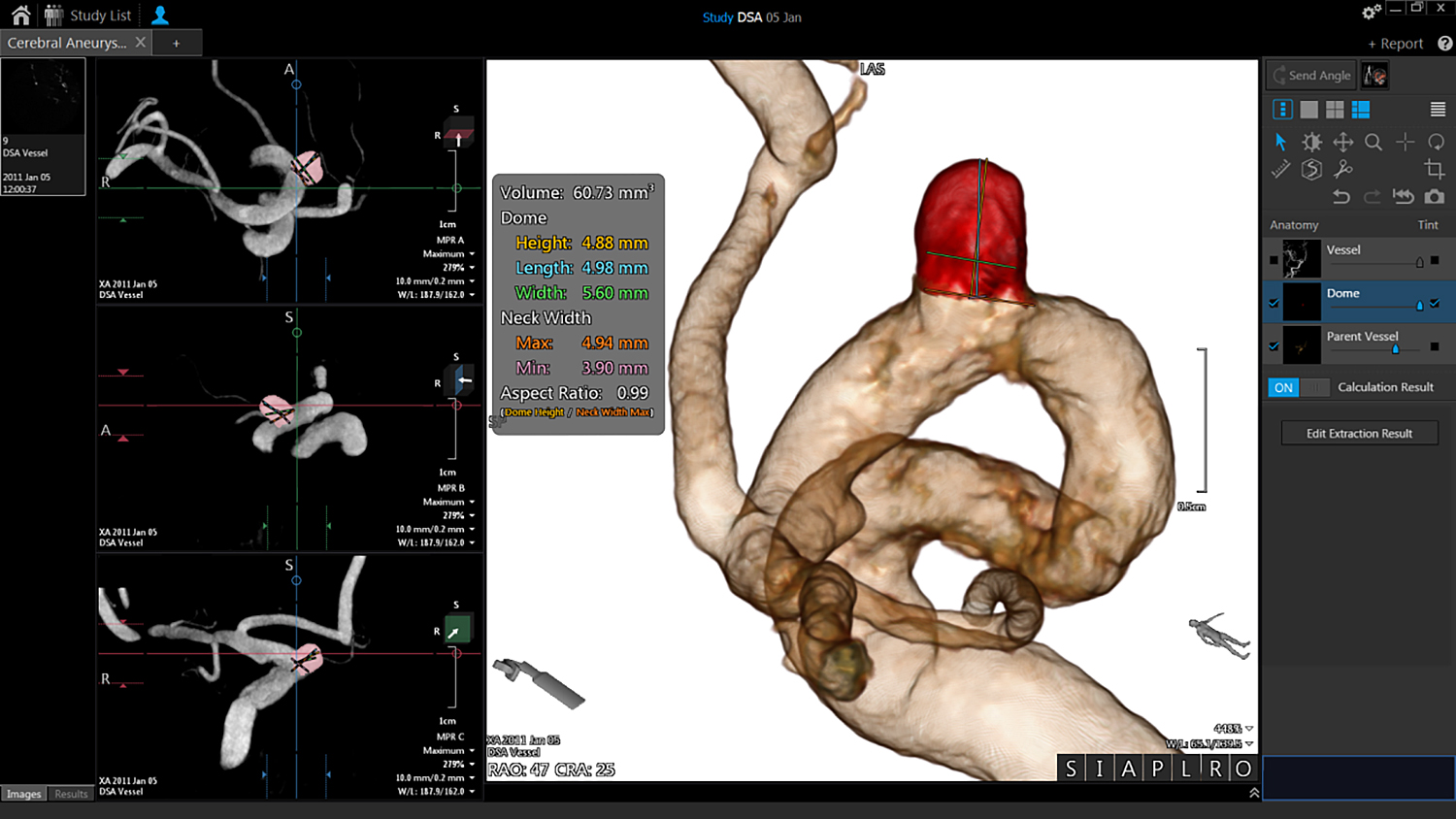
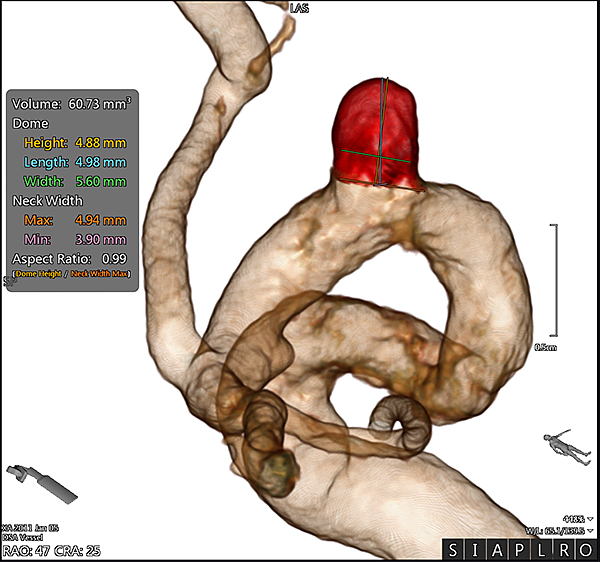
Neurology Clinical Applications
MR Neuro Packages
Vitrea™ software is a multi-modality advanced visualization system providing comprehensive applications in a variety of IT environments. Expert stroke post-processing options, parameters, maps and metrics incorporated into a fully automated workflow saves time. State of the art applications provide users with the latest tools and applications for neuro imaging.
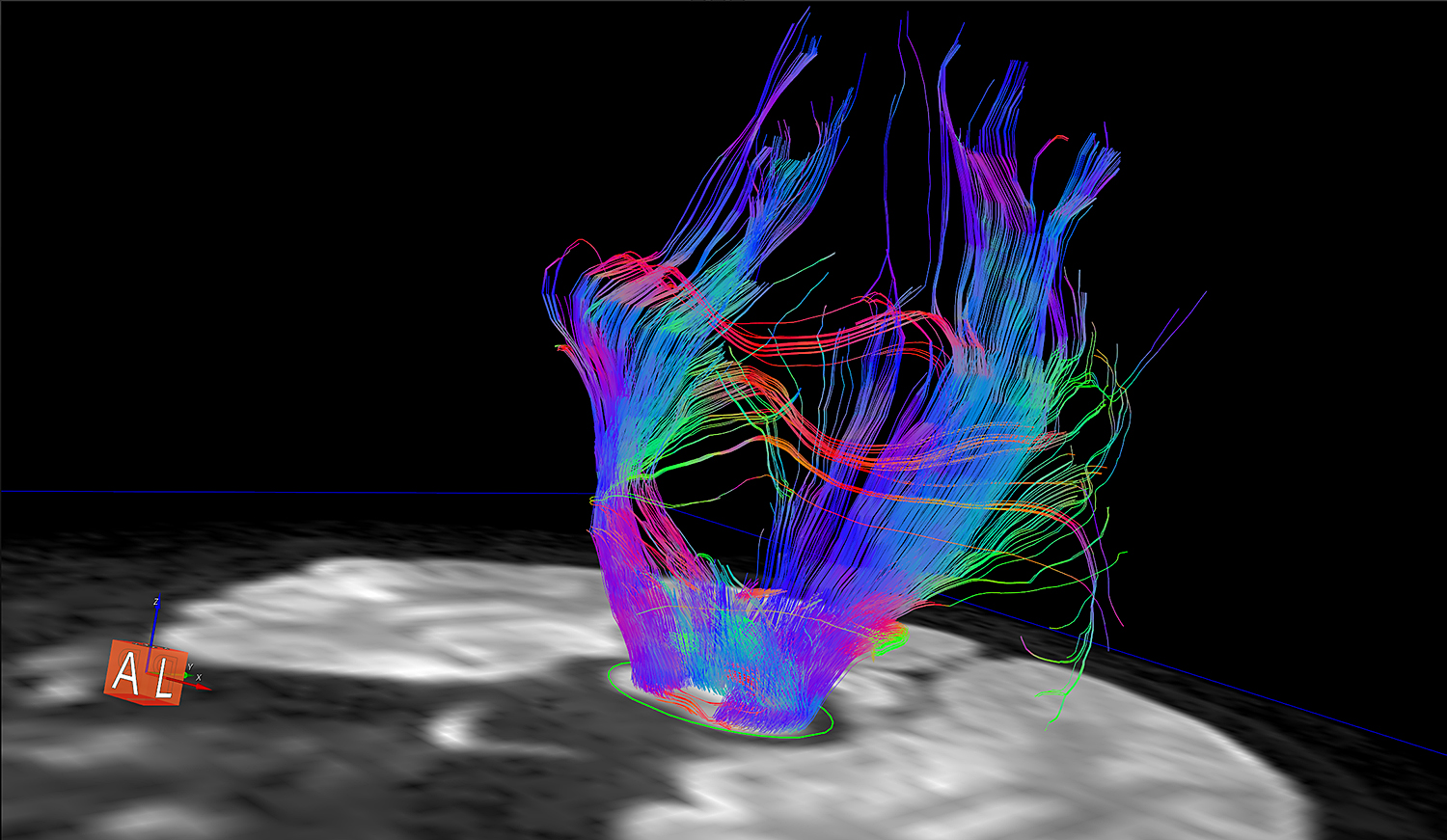
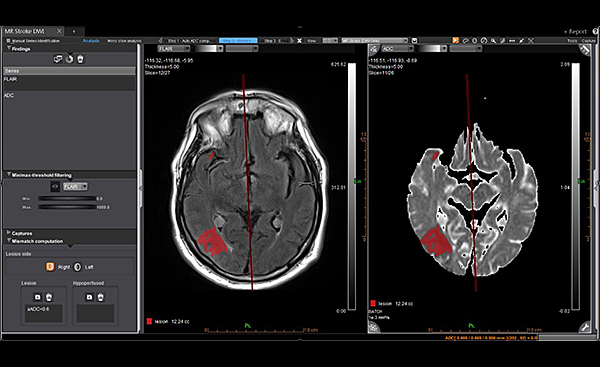
MR Basic Stroke
The Basic Stroke application is integrated into Vitrea Advanced Visualization and provides radiologists with direct access to expert stroke reports in any degree of emergency.
- Provides access to the full set of post-processing options, parameters, maps and metrics from anywhere at anytime
- Fully automated workflow saves time in patients presenting with a stroke
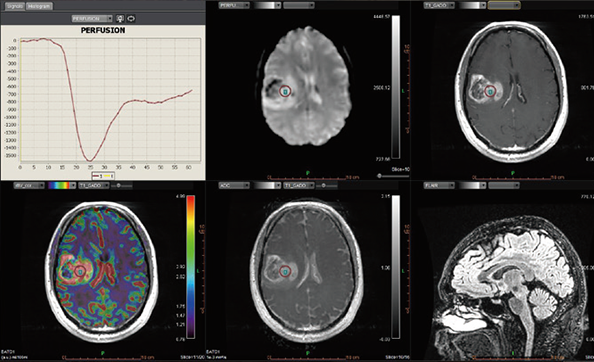
MR Neuro
The Neuro application is integrated into Vitrea Advanced Visualization and provides dedicated brain tumor and expanded stroke protocols which provide quick assessment of brain disorders.
- Computes optimized parametric maps (rBV, rBF, TTP, MTT, TMAX, tMIP) from raw perfusion series
- Uses an automated and customizable workflow
- Includes fully automated step-by-step processing for patients suffering from brain tumors, including quantitative and qualitative multiparametric analysis
- Provides rBV correction of contrast leakage and K2 map creation
- Offers one specific application:
- Brain Tumor DSC DCE Expanded Application
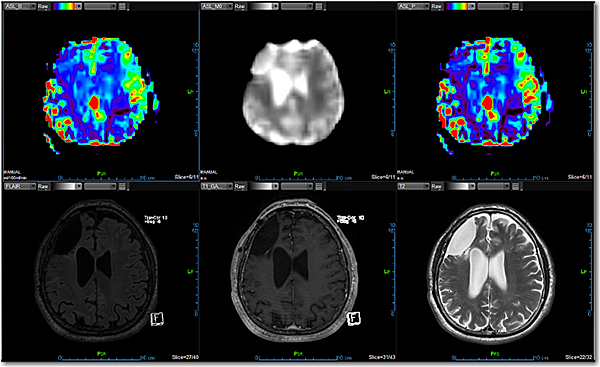
MR Neuro ASL
The Neuro Arterial Spin Labeling (ASL) application is integrated into Vitrea Advanced Visualization and provides non-invasive imaging to efficiently measure perfusion.
- ASL quantitative measurement of cerebral blood flow without administration of contrast material and without radiation is a key component in pediatric imaging
- Holds an advantage over contrast agent-based methods for patients with contraindication for contrast agent injections
- Allows loading repeated label and control images and performs 2D motion correction for realignment of repeated label and control pairs
- Uses spatial smoothing of images to increase signal-to-noise ratio
- Includes ASL blood flow quantification with Mo
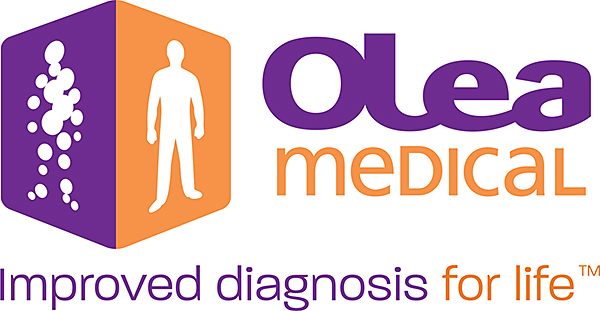
www.olea-medical.com
©Olea Medical 2017. All rights reserved.
Olea Medical is the recognized leader in standardized, vendor-neutral, advanced MR quantitative and qualitative image post-processing.
Olea Medical is a trademark of OLEA MEDICAL.
Neurology Clinical Applications
XA 3D-Angio
XA 3D-Angio provides visualization and analysis tools for rotational images acquired in angiography labs. 3D angiography provides enhanced 3D views of complex anatomy.
